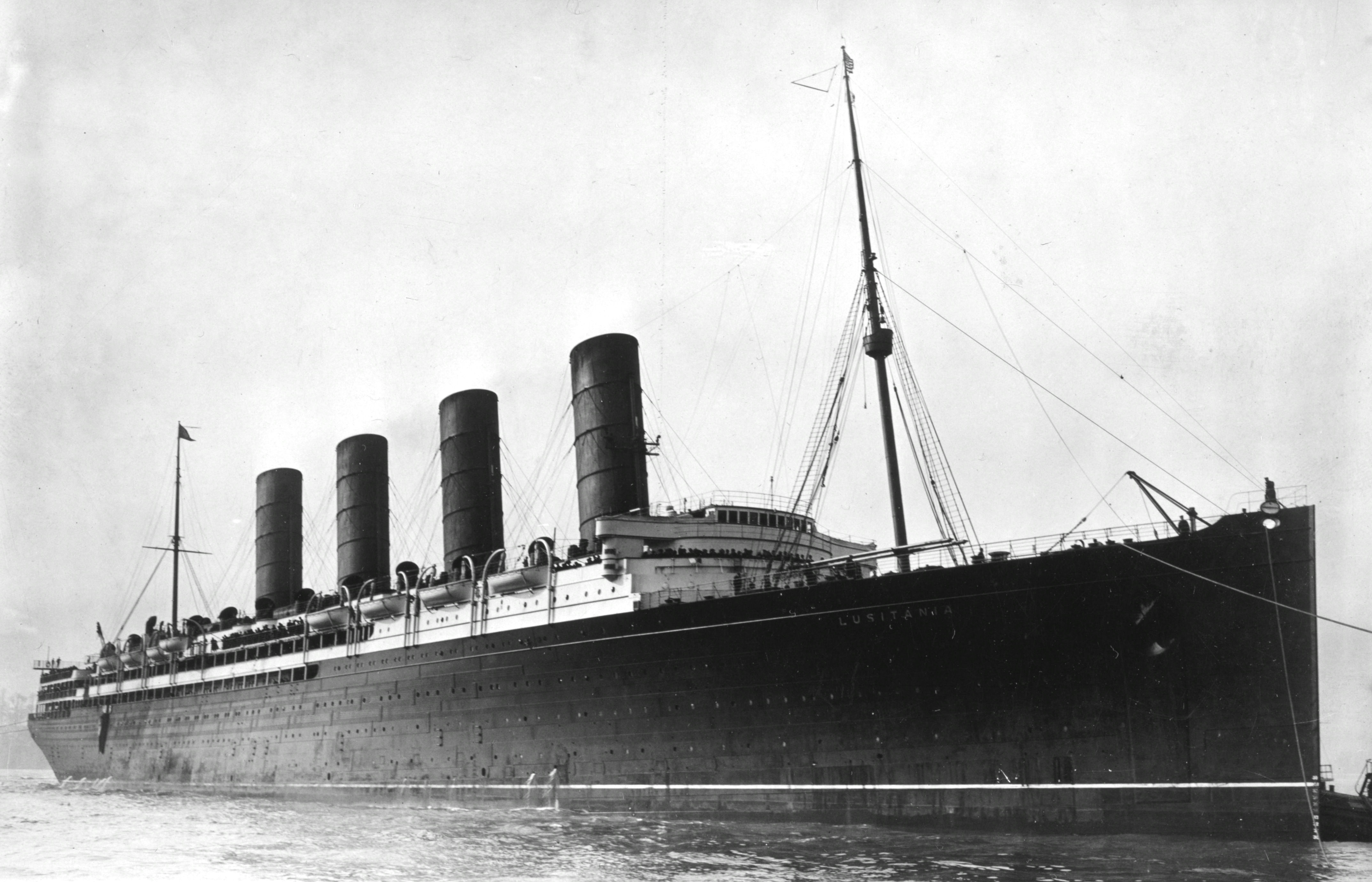A brief note jotted down by a WPA worker in 1939, caught our attention:
“The Joplin National Bank building on 402 Main Street, is located on an interesting site that is associate with the early days of Joplin. Where this fine bank building now stands was in the early days a duck pond where some of the old pioneers found fine duck shooting in season. Later on a frame building was placed on part of this lot and a saloon, typical of the early days, was established there. At this saloon, as was customary in the older days, the miners were paid off on Saturday night after their weeks work was done. This old building became quite shaky and was abandoned and torn down at the beginning of the World War. One of the owners of this old saloon was on his way to Ireland to visit relatives and lost his life on the Lusitania when that ship was sunk by torpedoes. For several years the lot remained vacant and was known as [the] Liberty Lot, because sales of Liberty Bonds and other patriotic movements, as well as public speaking, were held on this lot. After the world war, a bank building was erected.”
So who was this saloon owner who lost his life on May 7, 1915, when a German U-Boat U-20 torpedoed the RMS Lusitania off the southern coast of Ireland?
John H. Ferguson, an Irish immigrant, arrived in Joplin sometime around 1889. He allegedly accumulated a large amount of real estate and was owner of both the Club Saloon (402 Main Street) and the Union Bar (120 West Sixth Street). Prior to his departure to New York City, where he would board the Lusitania, Ferguson spoke with his attorney J.H. Spurgeon of Joplin. The purpose of his trip abroad was to visit his father Comack Ferguson, who still lived in County Cavan, Ireland, about the construction of a new building at 402 Main. After arriving in New York, Ferguson sent a letter to Spurgeon:
“New York, May 1
Dear Mr. Spurgeon: I reached New York last night and have booked quarters on the Lusitania of the Cunard line. The boat sails at 10 o’clock this morning. It is an English ship, but I guess I can get through on it all right.
Respectfully,
John Ferguson”
As soon as news arrived of the ship’s sinking, Spurgeon immediately sent a cablegram to Ferguson’s father in an effort to find out if Ferguson was among the survivors. A few days later, Comack Ferguson sent a cablegram to Spurgeon stating, “Cannot get any account of John.” In the week that followed, it became clear that Ferguson had not survived. Spurgeon told the Joplin News-Herald that as Ferguson’s attorney he had never drawn up a will for his client, nor had he heard Ferguson discuss a will. The News-Herald surmised that if a will was not found in Ferguson’s personal papers, his estate would go to his father, three brothers, and two sisters. Spurgeon estimated the estate’s value at somewhere around $75,000.
On May 19, Spurgeon, acting as the administrator of Ferguson’s estate, closed the Club Saloon and the Union Bar. Because the liquor and business licenses were in Ferguson’s name, the businesses could not operate after an administrator was appointed.
After the Lusitania disaster, family members sued the German government, and it was not until after World War One that these claims were settled. The family of John Ferguson apparently filed a claim, but as the record below indicates, his family was denied restitution.
Docket No. 2481.
UNITED STATES OF AMERICA
on behalf of
J. H. Spurgeon, as Administrator of the Estate of John Ferguson, et al.,
Claimant,v.
GERMANY.
BY THE COMMISSION: —
John Ferguson, a naturalized American citizen, 43 years of age, was a passenger on and went down with the Lusitania. He had never married. He left him surviving as his sole heirs-at-law a father, three brothers, and two sisters, all of whom were at that time British subjects. He died intestate. J. H. Spurgeon was appointed, qualified, and is the acting administrator of the decedent’s estate. While the value of this estate is not disclosed by the record it was evidently substantial. All liabilities of the estate have been discharged. The record fails to disclose any damages resulting from the death of the deceased, or from the loss of his property, and suffered by one possessing American nationality at that time.
Applying the rules announced in the Lusitania Opinion, in Administrative Decision No. V, and in the other decisions of this Commission to the facts as disclosed by this record, the Commission decrees that under the Treaty of Berlin of August 25, 1921, and in accordance with its terms the Government of Germany is not obligated to pay to the Government of the United States any amount on behalf of any of the claimants herein.
Done at Washington January 7, 1925.
EDWIN B. PARKER,
Umpire.CHANDLER P. ANDERSON,
American Commissioner.W. KIESSELBACH,
German Commissioner.



